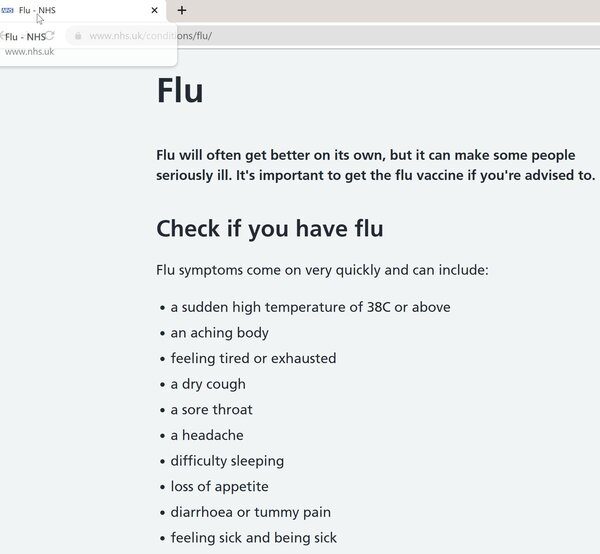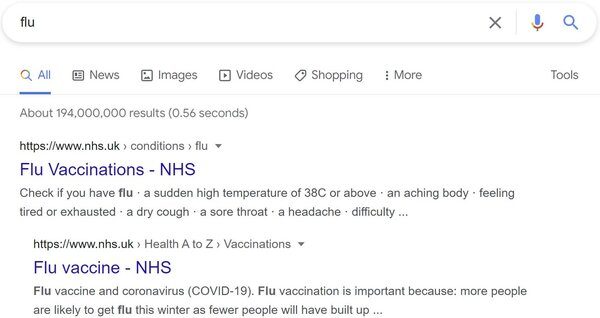Google’s Page Title Update: What We Know So Far
Last week I, along with other SEO professionals, noticed a peculiar change in the search engine results pages (SERPs). Our carefully crafted title tags were being replaced, and not a lot of people were thrilled. The hypothesis is that Google’s Page Title Update was to blame, so let’s talk about what we know so far.
What is Google’s August 2021 Page Title Update?
On August 24, 2021, Google informed the public of a new system that can generate titles for website pages. According to the article released, the new system will focus more on accurately describing what a page is about rather than adapting to the query posed by the searcher.
So, how will it do that? In the same announcement, Google noted down some factors that the new system will take into consideration when it creates a title tag. Some of these include:
- the HTML text
- the main visual title or headline
- header tags
- prominent content made with style treatments
Although the new system has gone live on the SERPs, Google’s recommendation to site masters is to still ensure that they create good HTML title tags. Out of all of the factors, Google approximates that 80% of the time title tags will be the basis of the generated titles.
Now that you know more about the Page Title Update, let’s talk about what happened when the new system went live.
Impact on search results
Last week, multiple webmasters spoke up about the new title tags that were being generated for their pages. Some are even calling it the “titlepocalypse.” The cause of frustrations was mostly the inaccuracy of the title tags being created by the new system. This has led to drops in traffic and the CTR of affected pages, which is a good cause of concern for any website owner.
Here are just a few examples of the concerns people had with the new title tags generated by Google’s page title update.
Copy is not found on the page
One common concern is for title tags created from content not found on the page. Take a look at what happened to our landing page for the keyword “SEO Philippines” on Google. The HTML title tag we placed directly matched the keyword, but Google’s new page title system changed it to this.

What’s even more questionable is that if you look through the content, there is no mention of the phrase “best SEO in the Philippines” either.
Other webmasters have also experienced the same phenomenon, with some noticing that the title tags were generated from the anchor texts of internal and external links. The problem with this is that they may not be able to completely summarize what a page is about.
Informal capitalizations
Notice anything else in the example above? That’s right, the informal capitalization. Web owners have also been sharing screenshots of their newly generated title tags having different capitalizations. This can look unprofessional to a searcher, which can lead to them not clicking on the page.
Take a look at the example SEO writer Jennifer Slegg shared in a tweet last week.

Inaccurate search intent
One of the more concerning industries affected by the update is the medical industry. With Your Money or Your Life (YMYL) content, accuracy is crucial as the information can affect people’s health.
One of the examples going around is the changing of pages from the UK’s National Health Service website. In a series of tweets by Dan Barker, he showcased the occurrence originally spotted by SEO consultant Jenny Hearn on the website’s page about the flu.

As you can see above, the page’s search intent is quite informational. It talks about flu symptoms, how to treat it, how to avoid spreading it, and more. However, after the page title update, this is what their page looked like on the SERPs.

Google labeled their page about the flu into “Flu Vaccinations”. Multiple members of the community have spoken up about this inaccuracy and how it can be dangerous for searchers.
How Google is responding to concerns
You may be wondering how Google responded to these concerns. First, they opened a thread where people can share their feedback on the new update. All web owners are free to reply to it with screenshots as well as the URLs of their affected pages.
Secondly, Google’s Danny Sullivan replied to some tweets suggesting a page in Google Search Console that will allow web owners to choose which pages they do not want to have automatic title tags.
Personally, I noticed that after a few days the title tags reverted to their initial state. Google must have seen the concerns of their community and gone back to the drawing board for this one.
Key takeaway
All in all, whether you were affected by the update or not, it would still do your website well to have optimized HTML title tags. If it can accurately describe your page while also answering the concern of the searcher, then there may be a higher chance that Google bases its title on it.
While I understand the reason and the intent behind the update, hopefully, Google learns from this and does a few more checks on their new system before it completely rolls out.
Were you affected by Google’s Page Title Update? Let me know in the comments below.

